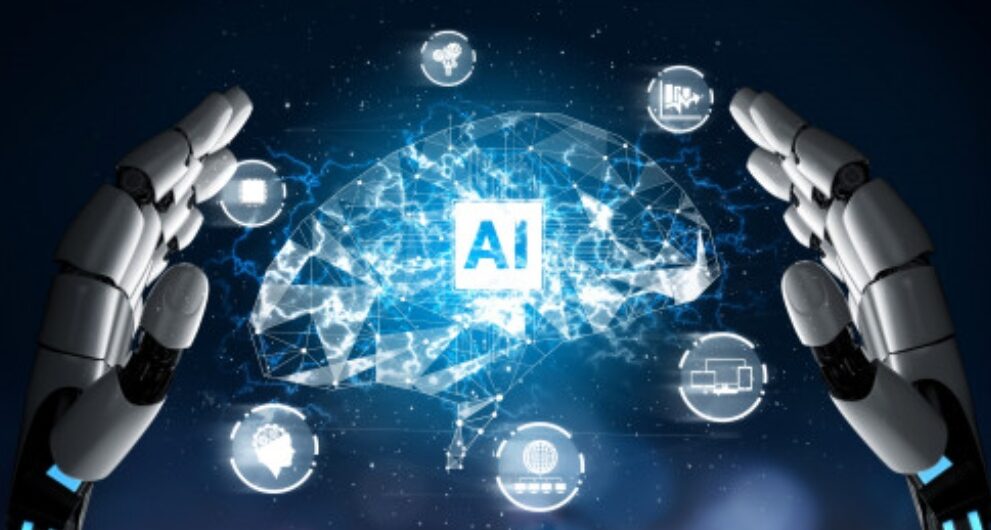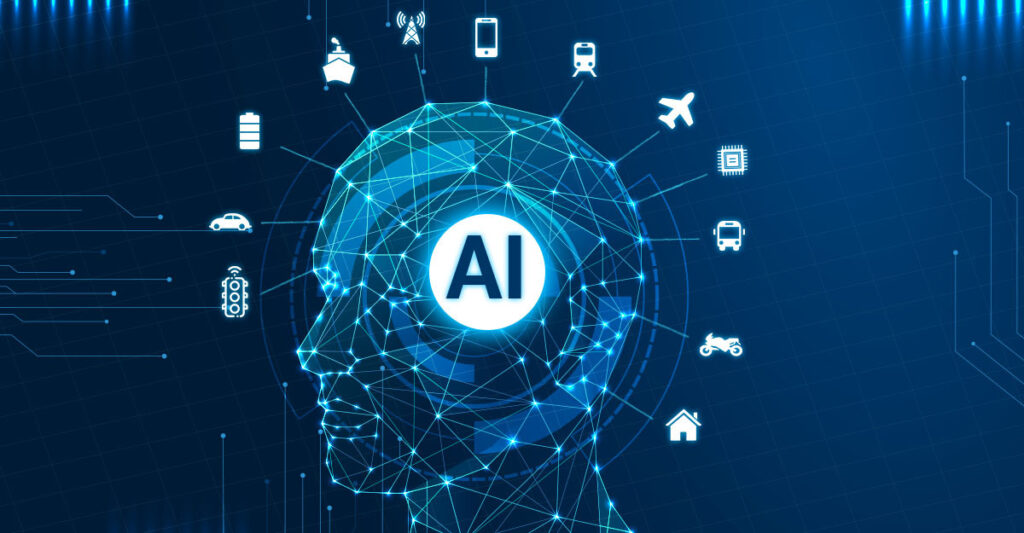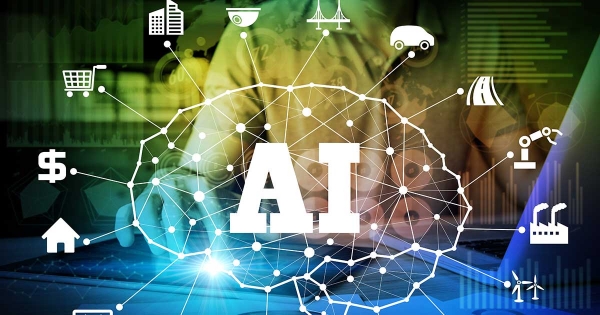The Evolution of Artificial intelligence From Concept to Reality

Artificial intelligence (AI) has come a long way from being a mere concept to a reality that is rapidly transforming our world. The evolution of AI has been driven by advances in technology, the availability of large amounts of data, and breakthroughs in machine learning algorithms. In this article, we will explore the key milestones in the evolution of Artificial intelligence and its impact on society.

Conceptualization of AI
The concept of AI dates back to the 1950s when researchers started exploring the possibility of building machines that could perform tasks that would typically require human intelligence. The term “AI” was first coined by John McCarthy in 1956, who organized the Dartmouth Conference, which is widely considered the birthplace of AI. At this conference, researchers discussed the potential of machines that could reason, learn, and perceive.
Artificial intelligence (AI) refers to the development of computer systems that can perform tasks that typically require human intelligence, such as visual perception, speech recognition, decision-making, and natural language processing. AI systems are designed to analyze data, learn from that data, and make decisions or take actions based on that learning.
AI can be broken down into two main categories: narrow or weak AI and general or strong AI.. These systems can perform their tasks with great accuracy and speed, but they are limited to the specific task they were designed for.
On the other hand, general AI refers to AI systems that can perform any intellectual task that a human can. These systems are capable of learning from experience, adapting to new situations, and solving complex problems. While general AI has not yet been achieved, it remains a long-term goal of AI research and development.
AI technology is being applied in a wide range of industries and domains, including healthcare, finance, transportation, and entertainment. As AI continues to advance, it has the potential to transform how we live and work, as well as the way we interact with technology. However, there are also concerns about the ethical and social implications of AI, such as job displacement, privacy, bias, and safety. Therefore, careful consideration and responsible development of AI technology are necessary to ensure that its benefits are maximized and its risks are minimized.
Early Development of AI
In the early days of AI, researchers focused on building rule-based systems that could follow a set of predefined rules to solve problems. However, these systems were limited in their ability to deal with uncertainty and lacked the flexibility to learn from experience.
The breakthrough came in the 1980s with the development of machine learning algorithms that could learn from data. Machine learning enabled computers to identify patterns in data and make predictions based on those patterns. This development paved the way for the development of more advanced AI systems.
Modern AI
The availability of big data and advances in computing power has fueled the development of modern AI. Deep learning, a subset of machine learning, has emerged as the dominant approach to building AI systems. Deep learning algorithms are designed to learn from large amounts of data and can handle complex tasks such as image and speech recognition.
Today, AI is being used in a wide range of applications, from voice assistants such as Siri and Alexa to self-driving cars and predictive maintenance systems in industrial settings. AI is also transforming healthcare, finance, and education, among other industries.
Impact of AI on Society
The impact of AI on society is significant and far-reaching. On the positive side, AI has the potential to improve our lives in countless ways, from helping doctors diagnose diseases to increasing the efficiency of transportation systems.

However, there are also concerns about the impact of AI on jobs and privacy. Many jobs that are currently performed by humans may be automated, leading to job losses in certain sectors. There are also concerns about the use of AI for surveillance and the potential for AI to be used for malicious purposes.
As AI continues to evolve, it is essential that we find ways to ensure that it benefits society as a whole. This will require ongoing research and development, as well as thoughtful regulation and ethical considerations.
The evolution of AI from a concept to a reality has been driven by advances in technology and the availability of data. AI has the potential to transform our world in countless ways, but it also presents challenges that must be addressed. As we move forward, it is essential that we continue to explore the potential of AI while also being mindful of its impact on society.
In conclusion, the evolution of AI from concept to reality has been a fascinating journey that has revolutionized the way we interact with technology. Over the past few decades, AI has grown from a mere theoretical concept to a practical reality that has transformed industries, created new opportunities, and improved our daily lives.
We have seen significant progress in the development of AI, from early rule-based systems to modern-day deep learning algorithms capable of performing complex tasks with remarkable accuracy. We have also witnessed the rise of intelligent virtual assistants, autonomous vehicles, and robots that can learn and adapt to their environments.
Despite the tremendous advancements in AI, there are still many challenges that need to be addressed, such as ensuring ethical and responsible use of AI, addressing biases and fairness issues, and enhancing transparency and interpretability of AI systems.
As we continue to push the boundaries of Artificial intelligence research and development, it is crucial to strike a balance between innovation and responsibility. By doing so, we can ensure that AI remains a force for good, benefiting humanity and advancing our collective knowledge and understanding of the world.


























































































































































































































































































































































































































































































































































































































































![Fixing [pii_email_aa0fea1a78a192ae7d0f] Microsoft Outlook Error](https://www.huffenpost.com/wp-content/uploads/2023/03/What-Causes-the.jpg)
![Fixing [pii_email_aa0fea1a78a192ae7d0f] Microsoft Outlook Error](https://www.huffenpost.com/wp-content/uploads/2023/03/How-to-fix-the-1-1024x1024.webp)
![Quick fixes for the [pii_email_dbd9dd084703ead3b9cf] Mail Error](https://www.huffenpost.com/wp-content/uploads/2023/03/How-to-Avoid-pii_email_b6b14f95f44a83737071-Outlook-Error-1024x576.jpg)
![How to fix the [pii_email_bbf95bff57a974a71da8] in Microsoft Outlook?](https://www.huffenpost.com/wp-content/uploads/2023/03/How-To-Solve-The-pii_email_9e750e335dfd9d75badb-Outlook-Error.webp)
![How to solve the [pii_email_b6b14f95f44a83737071] Outlook Error](https://www.huffenpost.com/wp-content/uploads/2023/03/How-to-Avoid-pii_email_b6b14f95f44a83737071-Outlook-Error.png)
![Ways to fix the "[pii_email_1fb861393abed78ab415] Error](https://www.huffenpost.com/wp-content/uploads/2023/03/pii_pn_56e685559f213991c933-Error-Causes-and-Solutions2.jpg)
![How to Fix the [pii_email_e2f55b4aa7bb667da6d9] Error](https://www.huffenpost.com/wp-content/uploads/2023/03/How-to-fix-the.webp)
![What Everyone Should Know About [pii_email_59ea919492dfc2762030]](https://www.huffenpost.com/wp-content/uploads/2023/03/pii_email_aa0fea1a78a192ae7d0f-Email-Error-and-Its-Solutions-1024x683.jpg)
![How to Fix the [pii_pn_5359771d15a46e7b88bf] Outlook Email Error](https://www.huffenpost.com/wp-content/uploads/2023/03/pii_email_57a4a2f20ec6813a8481-SMTP-Error-Solution-2.jpg)


























































































